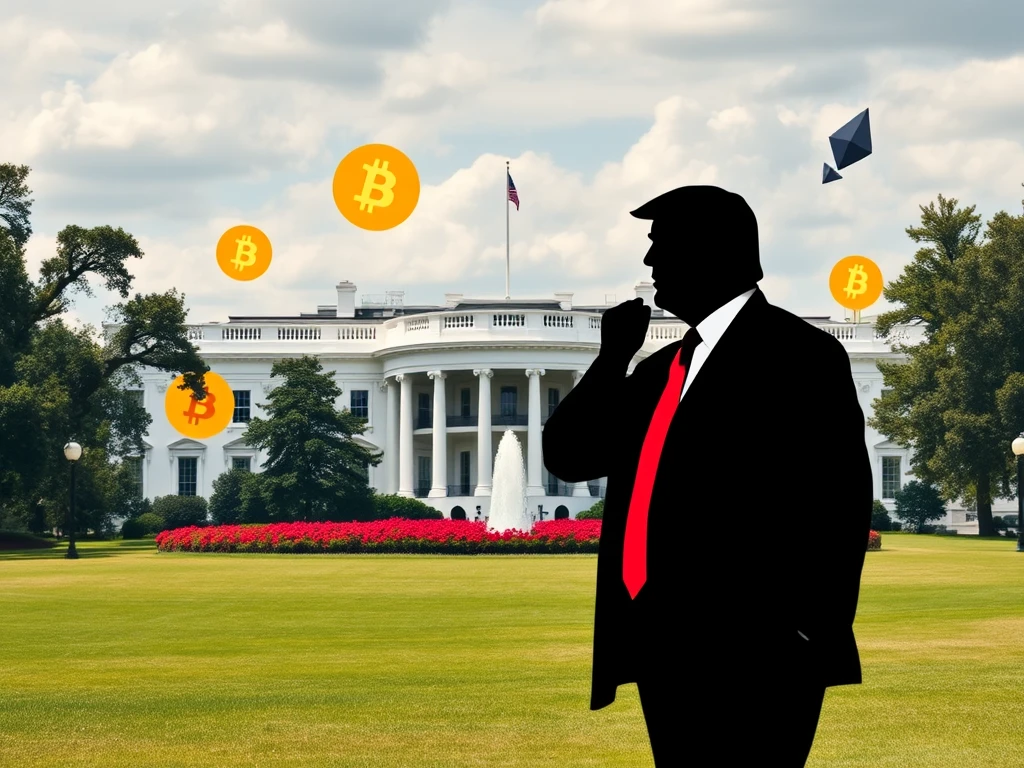Trump’s Unprecedented Crypto Actions Spark Controversy in First 100 Days

Donald Trump’s return to the White House has undeniably stirred the pot, especially within the crypto industry. The initial 100 days of his administration have been a period of rapid, often controversial, change. While some hail the policy shifts as a boon for crypto adoption, others point to economic uncertainty and ethical concerns tied directly to the president’s involvement. This period, described by former White House communications director Anthony Scaramucci as “the worst 95 days in modern presidential history,” presents a complex picture for digital assets.
Trump’s Early Moves Set the Crypto Tone
The tone for the administration’s approach to crypto was set immediately. On day one, alongside the inauguration, a memecoin linked to Trump’s family firm launched, sparking both interest and ethical questions. This signaled an administration willing to engage directly with the digital asset space, albeit in unconventional ways.
Key appointments quickly followed, placing individuals perceived as pro-crypto into influential roles at federal agencies like the SEC and CFTC. Paul Atkins was nominated to lead the SEC, replacing Gary Gensler, while David Sacks, a crypto investor, was appointed as the AI and crypto “czar” on the President’s Council of Advisors on Science and Technology. These moves indicated a strategic intent to shape future crypto regulation from within the government.
Bitcoin, Trade Wars, and Policy Shifts
The economic policies enacted by the Trump administration have had a tangible impact. A renewed trade war, particularly with China, Mexico, and Canada, introduced macroeconomic uncertainty. This affected crypto markets and specifically challenged Bitcoin miners facing higher equipment costs due to tariffs. Concerns about de-dollarization also surfaced within the crypto community.
However, policy directly targeting crypto also emerged. A significant executive order banned the creation of a US central bank digital currency (CBDC), a move welcomed by privacy advocates in the crypto space. The same order established a working group aimed at positioning the US as a leader in crypto. Another notable action was the commutation of Silk Road founder Ross Ulbricht’s sentence, fulfilling a campaign promise popular with libertarian-leaning crypto supporters.
White House Focuses on Reserves and Dialogue
A major development was the establishment of a “Strategic Bitcoin Reserve” and a broader US Digital Asset Stockpile. While the Bitcoin reserve primarily pooled assets seized from criminal proceedings, it included provisions for potential future purchases, signaling government recognition of Bitcoin as a strategic asset.
The White House also hosted a Crypto Summit, bringing industry leaders like Michael Saylor and Brian Armstrong to Washington. The goal was to discuss regulation and industry development. While some attendees were optimistic about the focus on strengthening the US crypto sector, others, like Charles Hoskinson, noted that true change requires legislative action in Congress, a potentially slower and more complex process.
Controversy Lingers Around Trump’s Crypto Ties
The administration’s close ties to specific crypto projects continued to generate controversy. The WLFI firm launched a stablecoin, USD1, raising ethical flags among lawmakers concerned about potential conflicts of interest given the president’s ability to influence stablecoin policy. Reports of a high-priced dinner opportunity for top Trump memecoin holders further fueled concerns, leading to calls for ethics investigations and even impeachment support from some lawmakers.
These ethical questions, coupled with the economic instability caused by policies like the widespread ‘Liberation Day’ tariffs, have led some observers, like Anthony Scaramucci, to argue that the controversies surrounding Trump could actually hinder the industry’s efforts to advance crypto regulation in Congress. Despite some legislative progress on bills like the STABLE Act and GENIUS Act, the highly charged political environment creates significant hurdles.
Summary: A Period of Rapid Change and Significant Debate
Donald Trump’s first 100 days in the White House have been transformative for the crypto industry, introducing both significant policy shifts aimed at fostering growth and substantial controversies tied to the president’s personal involvement in crypto projects. From appointing pro-crypto officials and establishing digital asset reserves to navigating trade wars and ethical probes, the period has been marked by unprecedented activity. While the long-term impact remains to be seen, these initial months have set a complex stage for the future of crypto regulation and adoption in the United States, highlighting the ongoing tension between innovation, policy, and political ethics.







